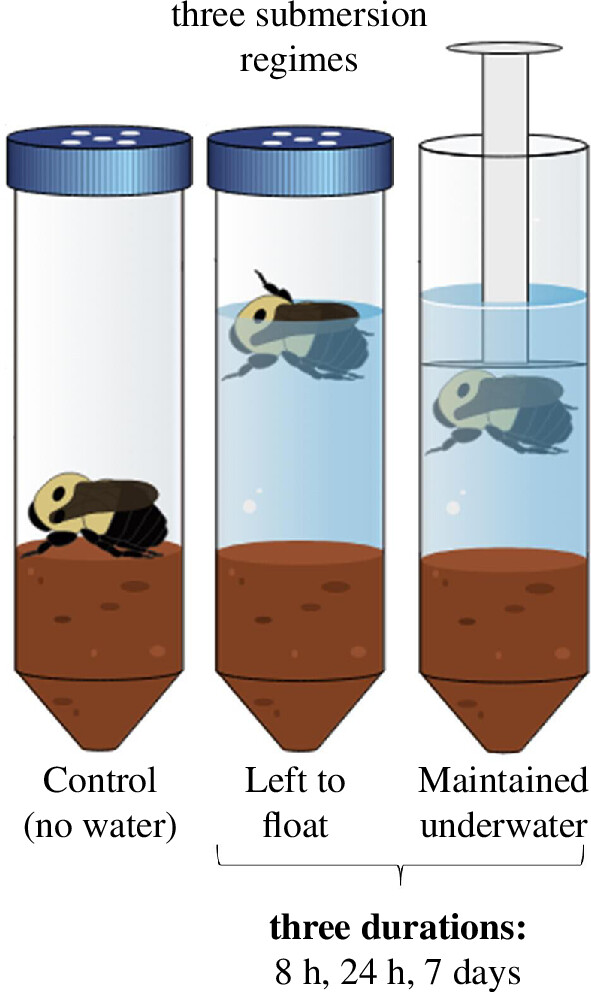We associate a lot of things with bees: honey, the coming of spring, maybe the occasional sting, and the adorable waggle dance, to name a few. But rarely do the words “underwater” and “bees” appear in the same sentence. Now some slightly accidental research has revealed that queen bees can survive underwater for days at a time.
The study’s lead author Sabrina Rondeau had been studying pesticide residue in soil and how this affected queen bees who burrow underground to overwinter when some water entered the tubes that contained some of the bees. “I freaked out,” said Rondeau to AFP. “It was only a small proportion… so it was not that big of a deal, but I didn’t want to lose those bees.”
To her surprise all the bees in the tubes survived, and this inspired Rondeau to start a proper experiment looking into this ability. “I’ve been studying bumblebees for a very long time. I’ve talked about it to a lot of people and no one knew that this was a possibility.” continued Rondeau.
Typically at the end of the summer months, unmated queens are made by the colony and then they breed before spending 6-9 months in burrows in the ground overwintering in a process called diapause. Only the queens survive the winter months while the rest of the colony dies off. Diapausing in the ground for so long comes with challenges, however, including the problems of parasites, mold, and potential flooding.
In the new experiment, 143 hibernating queen common eastern bumble bees (Bombus impatiens) were placed in a tube with soil, with either no water as a control tube, fully submerged with a plunger, or floating in water. The period in the tubes was 8 hours, 24 hours, or 7 days, and the bees were put into an artificially induced diapause in a fridge. After this, the bees were transferred to new tubes with soil and kept in cold conditions for a further eight weeks.

The experimental setup.
The results of the study showed that 81 percent of the bees (17/21) that were fully submerged survived not only the full seven days in the experiment but were still alive after eight weeks in refrigerated conditions.
The team thinks this unusual survival could be down to the species, as common eastern bumblebees are particularly tough and have not experienced the same degree of population decline as other bee species. “So we are also wondering whether this resistance to flooding can be part of why they’re doing so well,” said Rondeau.
The team thinks this discovery is good news and means that this species might have a better chance of surviving climate change-related flooding events in the future.
The paper is published in the journal Biology Letters.
Source Link: Queen Bumblebees Can Survive Underwater For A Week